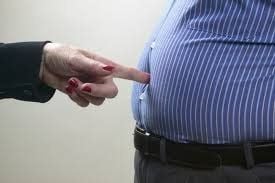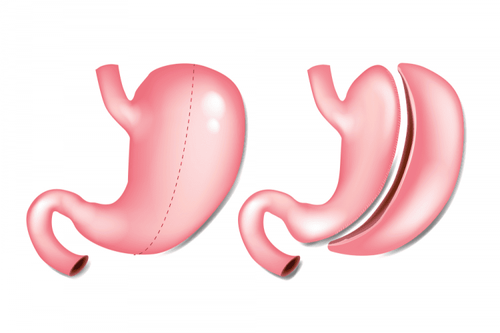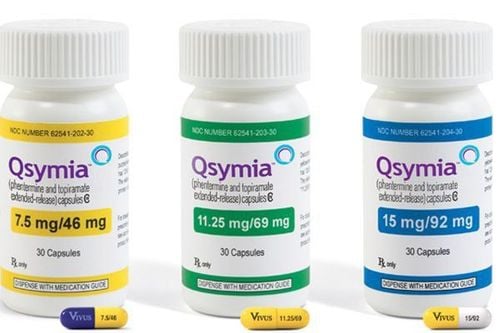This is an automatically translated article.
Weight loss surgery and rapid weight loss results are the last resort used for people who are severely obese. However, it also reduces nutrient absorption. Therefore, you need to consider choosing the right type of surgery for your health condition.1. How does surgery help with weight loss?
All types of weight loss surgery narrow the stomach, thereby creating weight loss effects in different ways:
Limiting the stomach's ability to store food, reducing appetite, reducing the amount of food. foods to help with weight loss Prevents the digestive system from absorbing significant amounts of calories and nutrients in food Combines both of the above
2. Weight requirements in weight loss surgery
Subjects indicated for weight loss surgery are those who have:
Body mass index (BMI) of 40 or more (over 45 kg of weight). BMI of 35-40 (about 36kg overweight) associated with diabetes, metabolic syndrome, asthma, cardiovascular disease or obstructive sleep apnea. BMI between 30 and 35 associated with diabetes or metabolic syndrome.

Nên phẫu thuật giảm cân khi nào?
3. Types of weight loss surgery
Weight loss surgery has many different types including Gastric Sleeve, Lap Band, Vertical Gastric Banding are limited surgeries. stomach size control; Biliopancreatic Diversion and Gastric Bypass are surgeries that reduce food absorption.
3.1. Roux-en-Y gastric bypass surgery In gastric bypass surgery, the doctor uses surgical staples to cut the upper part of the stomach into a small pouch. This pouch functions as a new stomach with the capacity to hold about 1 cup of food. The rest of the stomach is still retained to supply substances secreted by the pancreas to help digest food coming from the small gastric sac.
Next, the doctor will cut the small intestine attached to the stomach to attach to the newly created small stomach bag. Then connect the remaining part of the stomach (which has been removed from the small intestine) with the lower part of the small intestine to form a "Y" shape. That is the gastric bypass (Bypass) phase of the surgery. Surgery can be performed laparoscopically.
3.2. Gastric Sleeve In tubular gastrectomy, the doctor removes most of the stomach (75%) longitudinally, creating a tubular stomach that remains. attached to the small intestine. After surgery, the stomach can only hold about 57-85g of food, making you feel full sooner. You'll also feel less hungry after surgery because most of the appetite-stimulating hormone (ghrelin) is eliminated.
3.3. Lap Band surgery During gastric banding surgery, the doctor will wrap an inflatable ring around the top of the stomach, inflating the ring, which squeezes the upper part of the stomach, creating a small stomach pouch with a narrow opening that connects to the stomach below. Surgery helps to lose weight by mechanism: After eating, food pushes against the tightened stomach wall, sending signals to the brain to help curb cravings. A second or more surgery may be needed to correct the cuff around the stomach.

Phẫu thuật thắt đai dạ dày
3.4. Vertical Gastric Banding Vertical gastric banding is used less and less. The surgeon cuts a hole in the upper part of the stomach and then places surgical staples that act like sewing the top of the stomach into a small pouch. Then, the doctor will put a plastic ring through the hole, wrapped around the lower part of the stomach bag. After surgery, food will move from the stomach bag through a small hole in the plastic ring and then to the lower part of the stomach.
3.5. Biliopancreatic Diversion is a type of malabsorption surgery that cuts calories and nutrients absorbed from food. First, the doctor will create a small pouch from the stomach like gastric bypass surgery. The bag contains only 110 - 140g of food, helping to reduce the amount of food put into the body. However, unlike gastric bypass surgery, your doctor will remove the rest of your stomach and most of your small intestine. This type of surgery helps to lose weight the fastest because it reduces the absorption of a lot of nutrients.
4. Weigh the pros and cons of weight loss surgery
Weight loss surgery has many different pros and cons, the doctor will explain for you to consider choosing the right type of surgery. In addition, a general physical examination is necessary to prepare for surgery. You also need to commit to yourself that besides the big changes in your body, you will combine with other weight loss measures to increase the effectiveness of weight loss. Before surgery, you will be asked to quit smoking, lose weight, and make sure your blood sugar is stable.

Cần khám sức khỏe tổng quát trước khi phẫu thuật giảm cân
5. Prepare for weight loss surgery
Your doctor will inform you what to prepare for surgery: Avoid using aspirin and any aspirin-containing products, dietary supplements 1 week before surgery; You need to eat or drink liquid foods within 24-48 hours before surgery. During the surgery, you will be under general anesthesia.
6. Weight loss surgery method
Weight loss surgery methods include open surgery or laparoscopic. In particular, laparoscopic surgery has more advantages such as smaller scars, fewer complications and faster recovery time. For laparoscopic surgery, the doctor will cut a number of small incisions in the abdomen to create a way into the abdomen, insert the laparoscope and observe the image inside the body through the monitor. For open surgery, you will be cut 20-25cm above the abdomen to open the way into the stomach.
7. Recovering from weight loss surgery
After surgery, you need to stay in the hospital for a short time until your health is stable. You will be prescribed pain medication and monitored closely by your doctor for unusual signs such as low blood sugar, dehydration, or blood clots.

Cần uống thuốc theo chỉ định của bác sĩ sau phẫu thuật
You need to go on a diet for a few weeks before you can eat solid food and get nutritional advice from nutritionists and specialists to plan an appropriate eating plan. Diets will shift to eating lower-calorie and more nutrient-dense diets that change eating habits over time.
8. Effective weight loss after surgery
Weight loss can be dramatic, in some cases up to 0.5kg/day in the first 3 months. The combination surgery that both narrows the stomach and reduces the ability to absorb food will lead to faster weight loss than gastric bypass surgery. Malabsorption surgery is the fastest and most effective way to lose weight, but it can cause illness due to the lack of certain nutrients the body needs.
9. Other health benefits after weight loss surgery
Health problems such as high blood pressure, diabetes or other weight-related problems will improve or disappear after surgery. You should see your doctor for advice on medications to treat weight-related illnesses. Losing weight can also help reduce arthritis, joint pain, sleep apnea, and make it easier to do physical activities.

Giảm cân có thể giúp giảm viêm khớp
10. Lifestyle changes after surgery
You need to change your lifestyle and maintain it for it to become a habit. That way, the weight loss process is long-lasting and you can live with a standard weight, away from weight-related health problems. Make small meals, change your diet and exercise daily.
11. Risks encountered in weight loss surgery
For bariatric surgery, risks are more common in older adults, with a history of deep vein thrombosis (blood clots) and severe obesity. The best way to avoid risks during surgery is to prepare well for it. You need to have regular health check-ups, adhere to a diet plan and exercise according to the principles of life that you have set out.
12. Complications after weight loss surgery
Weight loss surgery can increase your risk of complications such as:
Incisional infection Blood clots Stomach ulcers

Có thể bị viêm loét dạ dày sau phẫu thuật giảm cân
Gallstones Lack of nutrients Problems with the pump or gastric band (if that type of surgery is done) Sagging skin in weight loss sites. Surgery to remove excess skin is only done at least 18 months after weight loss surgery.
13. Dumping Syndrome
Weight loss surgery causes food and drink to move too quickly through the small intestine causing symptoms including nausea, weakness, sweating, fainting, diarrhea after eating, inability to eat sweets. To avoid dumping syndrome, you need to follow the advice of a nutritionist and see your doctor if you have any unusual symptoms.
14. Supplementing nutrients after weight loss surgery
After weight loss surgery, the ability to absorb vitamins A, D, E, vitamins K, B12 and minerals iron, copper, calcium and other nutrients may decrease. Supplements with these nutrients can be used as needed to prevent conditions such as anemia and osteoporosis . To monitor the levels of nutrients in the body, you need to have regular health checkups and follow the instructions of the treating doctor.
15. Adjusting to a new lifestyle
Weight loss surgery can bring you many different emotions. Happy to lose weight every day. Besides that is frustration, overwhelmed because of the need to change diet, activity and lifestyle. You need to learn to accept the mental and physical changes in your body. Call your doctor for advice if you have any questions regarding changes in your body.Please dial HOTLINE for more information or register for an appointment HERE. Download MyVinmec app to make appointments faster and to manage your bookings easily.
Reference source: webmd.com













